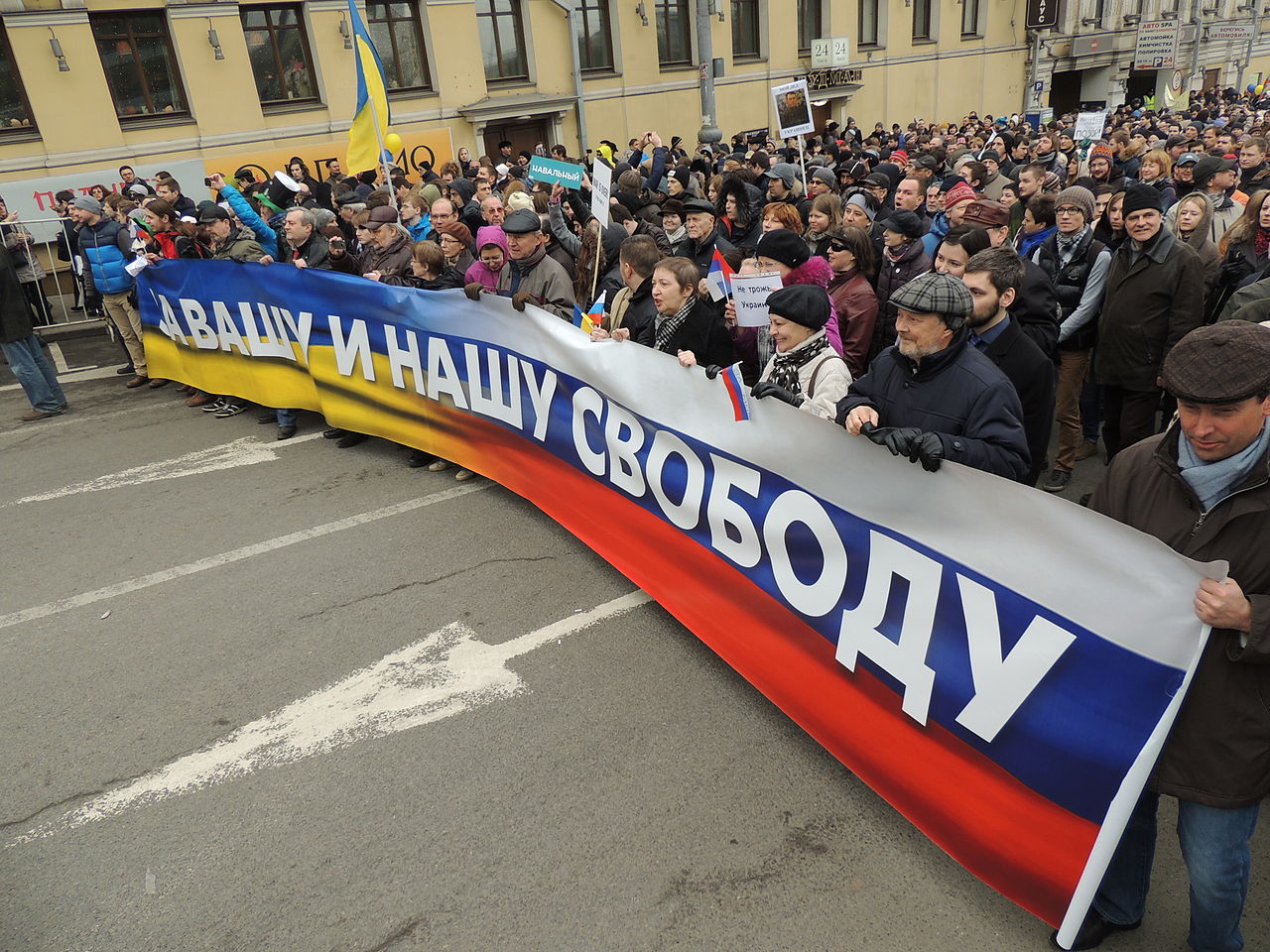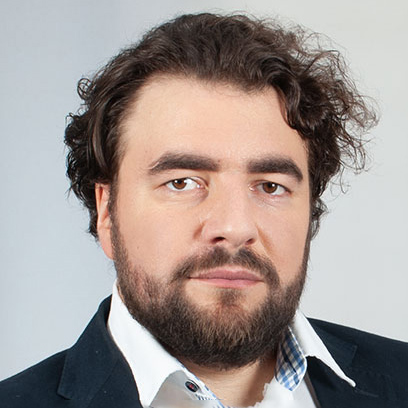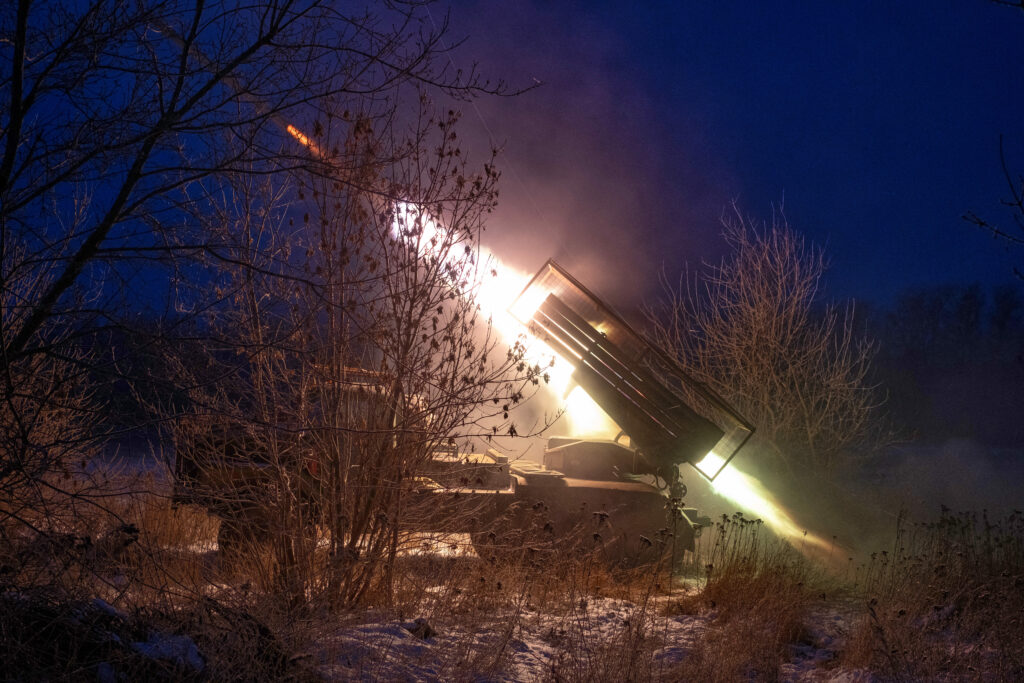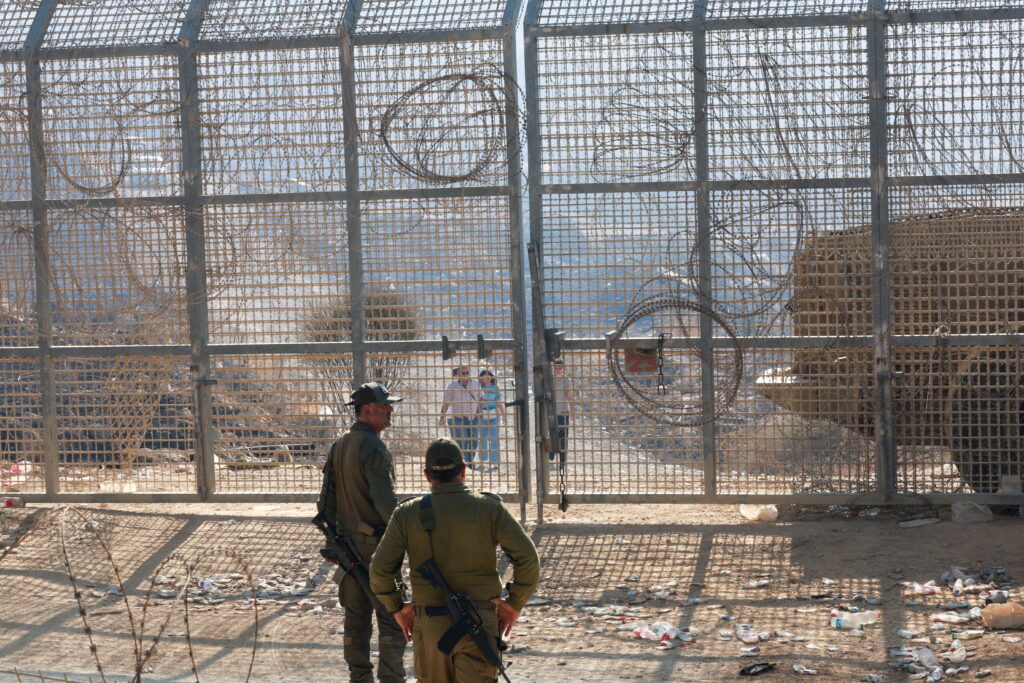Today, Russia is officially part of the war in Syria and unofficially part of the war in Ukraine. In neither of these two conflicts are Russian casualty rates easy to calculate. Figures vary from as few as 200 Russian citizens since 2014, to as many as 4000.
Do ordinary Russians care? Judging by the absence of a large and coherent anti-war movement in response to either Syria or Ukraine, it might appear that most do not. But there are several other reasons for apparent passivity in the face of ongoing conflicts and body bags. The most important one is that any anti-war movement is perceived as dangerous by the Russian authorities, and so making a public stand is full of hassle and personal risk.
Pre-existing support groups barely exist. Unlike in the Soviet Union, there are no large-scale networks of NGOs or government organisations in today’s Russia that promote anti-war activism. The USSR had a long list of groups tasked with exactly this. Each disbursed a wide variety of anti-war slogans throughout the Soviet Union’s domestic politics, mostly presenting external actors, like the United States and NATO, as aggressors. (The USSR itself, by contrast, was portrayed as a bringer of peace; the exception was Afghanistan during the Glasnost years.)
Russia inherited some of this Soviet ideology, and parts of its propaganda machine (which have in recent years been incorporated into much of the newsroom culture of its state broadcasting.)
Most anti-war groups, though, almost disappeared back in the 1990s. Some of these organisations were closed down; others, like the Russian Peace Foundation, changed their priorities. The foundation is currently headed by former Chairman of the State Duma Committee for Foreign Affairs, Leonid Slutsky: His organisation invited a significant number of loyal foreign observers to monitor the 2018 presidential election.
The last blast of anti-war activity in Russia was observed during the First Chechen War. By the time of the Second Chechen War, the situation had already become harder for the remnants of anti-war activist groups, and there were very few ways of standing loudly and proudly in opposition to war.
Explaining an Absence
In 2014, however, there was a small pacificist renaissance, admittedly eclipsed by a surge in patriotic feeling, but there at the same time nonetheless. It came largely in connection with the annexation of Crimea and subsequent military operations in Eastern Ukraine. The first anti-war rallies, in 2014, were echoes of those that had erupted from the First Chechen War. And that was no coincidence. They were largely initiated by the same network of post-Soviet human rights organisations, a network largely considered moribund come 2014.
Some protests started in Moscow even before the onset of hostilities on the Crimean Peninsula. The first serious rally (though small in numbers) took place on 2 March 2014 in front of the building of the Russian General Staff, and was dispersed by police. The main problem of the post-2014 anti-war movement could be diagnosed already at that point: The majority of society perceived these anti-war protests as pro-Ukrainian and anti-Russian.
Later on, the political opposition took the helm from these earnest human rights defenders. The first Peace March was organised in September 2014, and anti-war slogans were politicised. Party politics, in turn, subsumed the anti-war agenda, which gradually receded into the background.
As for purely anti-war and pacifist protests, the authorities cracked down on them with speed and intensity, as in the case of the Deserters’ Festival (Дезертир-Фест). Slated for February, 2017, the festival was banned by the police, and organisers and participants were dispersed or detained.
Smaller, sporadic anti-war protests are, it is perhaps unsurprising to note, closely monitored by the secret services. Their small size apparently means they’re not considered dangerous. Still, data on them can be used to charge participants with an attempted coup d’état: Some members of Russia’s marginal anarchist community were detained in 2018, right before the presidential election.
There are now virtually no protests against the war in Syria, no strong anti-war movement akin to that in the U.S. during the Vietnam War, or the USSR itself during Afghanistan. Crackdowns here play their part in preventing them.
Crackdowns on Pacifists
Having resorted to military operations as a tool to resolve issues in foreign or even domestic policy, the Russian authorities perceive anti-war movements a major threat. The government’s fight against any fledgling anti-war movement is carried out in all areas of social life.
All ‘traditional’ anti-war human rights organisations that remain, including the Committees of Soldiers’ Mothers, have been suppressed over the last four years. Some have been labelled ‘foreign agents’, and criminal cases have been brought against certain human rights defenders. Consequently, the activity of traditional human rights groups in anything to do with conflict has been cut to a minimum, as it poses a threat to the very existence of these NGOs.
There is also an attempt to caricature and misleadingly pigeonhole those who advocate peace. It is hardly a coincidence that it was in the aftermath of the 2014 events that the Russian authorities succumbed to the pressure of the Russian Orthodox Church and delegalized the Jehovah’s Witnesses, one of the most fervently anti-war religious organisations. Back in Soviet times, Jehovah’s Witnesses would rather be imprisoned than conscripted.
Meanwhile, a life under arms is garnering grassroots support and is encouraged and lionised. Growth in the popularity of the army picked up after the 2008 war in South Ossetia, against the backdrop of military reforms conducted by Anatoliy Serdyukov, succeeded by Sergey Shoygu. Research shows drastic changes in public sentiments. Military service has recently become one of the most desirable occupations; nearly three quarters of Russians believe that it is an excellent path to success. According to a poll by VCIOM, 71% of Russians would like to have servicemen among their closest relatives. The false narrative peddled here is between a life of honourable soldiering, or the eccentricity and apocalyptic visions of a Jehovah’s Witness.
Thus, the current public sentiments are in tune with the intentions of the power elite (and are partially formed by it). Anti-war or pacifist activity is equated with treason, cowardice and little known religious beliefs like those of Jehovah’s Witnesses.
Does Peace Have a Chance?
There are no fully-fledged, legally operating organisations that focus on the fight against the militarisation of society and demand the cessation of Russia’s involvement in military conflicts abroad. Formally, such organisations are not illegal; in practice, any attempt to establish a formal or informal organisation with such goals is the best way to draw the attention of the FSB (the Federal Security Service).
At most, opponents of the militarisation of Russian society seek to slow the surge of military spending. In other words, ‘systemic’ liberals such as Alexei Kudrin call for a reduction in the budget for maintaining and modernising the armed forces. Alexei Navalny, in turn, uses rational arguments that war is an expensive endeavour.
Despite this, the pacifist movement in Russia has great potential. Even in the face of explicitly expressed militaristic sentiments and the growing popularity of the army, there are deep-seated social phobias. The main one is the fear of a fully-fledged military conflict. According to major sociological surveys, nearly 75% of the Russians are afraid of open war to a greater or lesser extent, while nearly 50% are concerned about their children’s future.
Therefore, the growing number of casualties in current military conflicts and the emergence of new hot spots can unexpectedly result in drastic shifts in public sentiment. This is only a hypothetical option. So far, war discourse is only targeted at intimidating the population into doubling down on conflict: citizens are then shutting themselves off from the outside world, and they are withdrawing into their shells. Not through a belief in war, but through the confusion and worry and danger that comes from opposing it.










